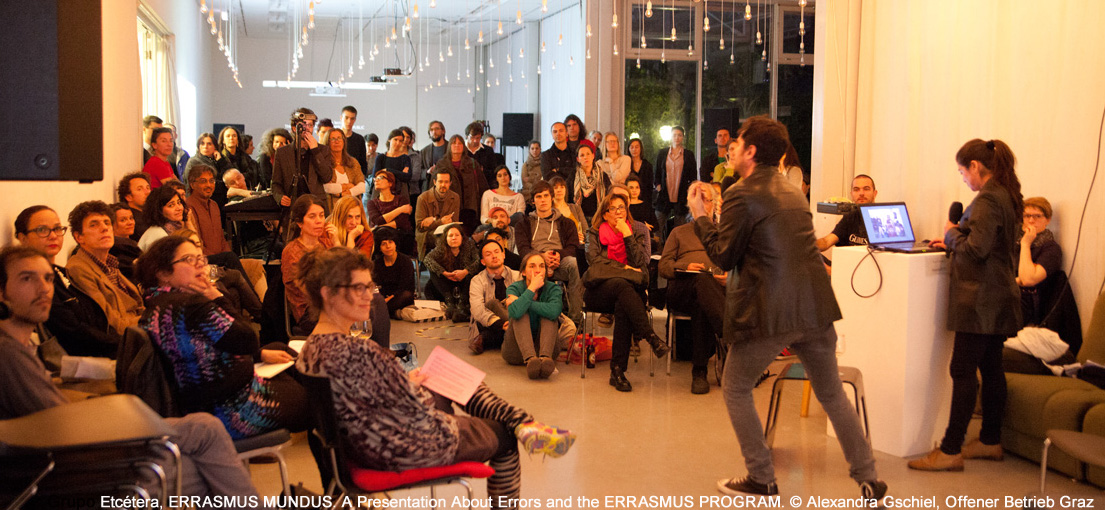Lectures & Workshops
The lectures and workshops at the symposium discussed various issues relating to alternative self-organized learning environments linked to the arts as well as questions of unlearning privileges of contemporary arts.
I was especially impressed by the talks by Shuruq Harb presenting the project “ArtTerritories” (Ramallah/Amman) and Alanna Lockward presenting the platform “Transnational Decolonial Institut” (Berlin/Port-au-Prince). Both lectures presented self-organized structures beyond the Western “white cube” of contemporary visual arts and raised the question of how these structures and practices can bring privileged “white cube” practitioners and participants from Western countries to unlearn what are perhaps narrow perspectives of the arts field, and their beliefs, norms, and expectations of the arts and its practitioners.
The project “ArtTerritories” is an online platform of artists, researchers, and curators for critical exchange and debate about the arts in the Middle East and Arab World. It deals, for instance, with the problem of freedom of movement and denial of movement based on one’s passport – although international mobility is a must for building up a career in the Western contemporary arts scene.
In her talk “Curating Afropean Decoloniality in the Arts Plantations of Modernity,” Alanna Lockward pointed out that her aim was not primarily to bring insight to blind Western eyes but to create structures and spaces of self-empowerment, for instance, with the festival “BE.BOP – Black Europe Body Politics” (*2012).
Saturday’s workshops were dedicated mainly to exploring concrete techniques and practices of “unlearning.” Participants explored their behavior and tried out new behavior that is oriented towards a different society and is unusual in institutional learning settings:
“No-Work No-Shop: an errorist De-Educational Experience” with Loreto Garin Guzmán and Federico Zukerfeld from “Grupo Etcétera” (Buenos Aires), basically questioned the workshop format itself and the setting of having a workshop leader or lecturer teaching participants. In an open workshop setting they developed, together with the participants, the theme, structure and output of the time spent together: Their presentation and performance at the end of the day questioned the participatory paradigm ironically leaving the audience uncertain as to what they had done together during the course of the workshop.
The workshop “Exploring Self-designed Learning as a New Movement of Self-Social-Systemic Transformation” with Manish Jain from “Shikshantar: The Peoples’ Institute for Rethinking Education and Development” (Udaipur), led participants to experience diverse exercises of group-solidarity and trust building as metaphorical and physical explorations of how a different society might work, and the kinds of principles and practices on which it might be built.
And in the workshop “Building a Living Bibliography” by Emilio Fantin, Alissa Firth-Eagland, and Alessandra Pomarico from the “FreeHome University” (Lecce), participants went to a public library in Graz with the task of finding a book in a way that is different than their usual selection procedures. Based on their chosen book, each participant compiled one page for a collectively produced zine, which would represent the day’s findings.
Laila Huber ( 2014): Thoughts about a Decentralized Academy in Graz – (Un)Learning Contemporary Art?. In: p/art/icipate – Kultur aktiv gestalten # 05 , https://www.p-art-icipate.net/thoughts-about-a-decentralized-academy-in-graz-unlearning-contemporary-art/



 Artikel drucken
Artikel drucken